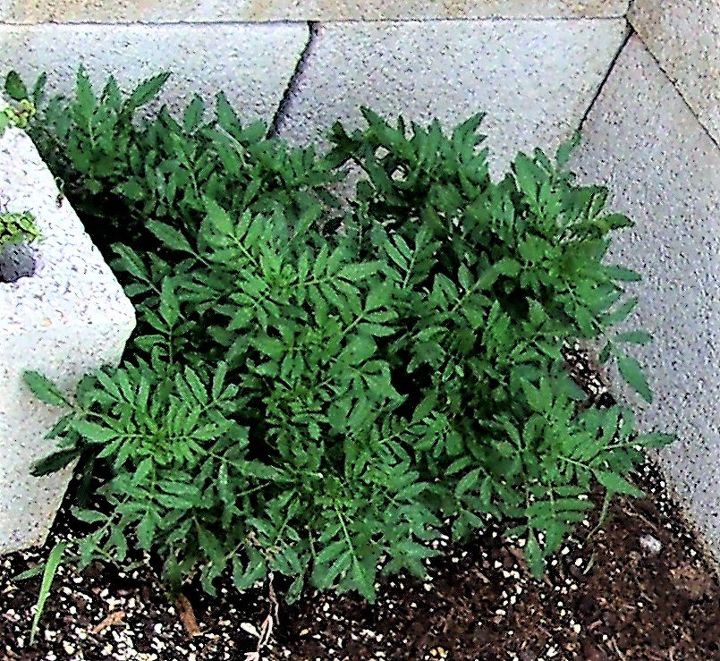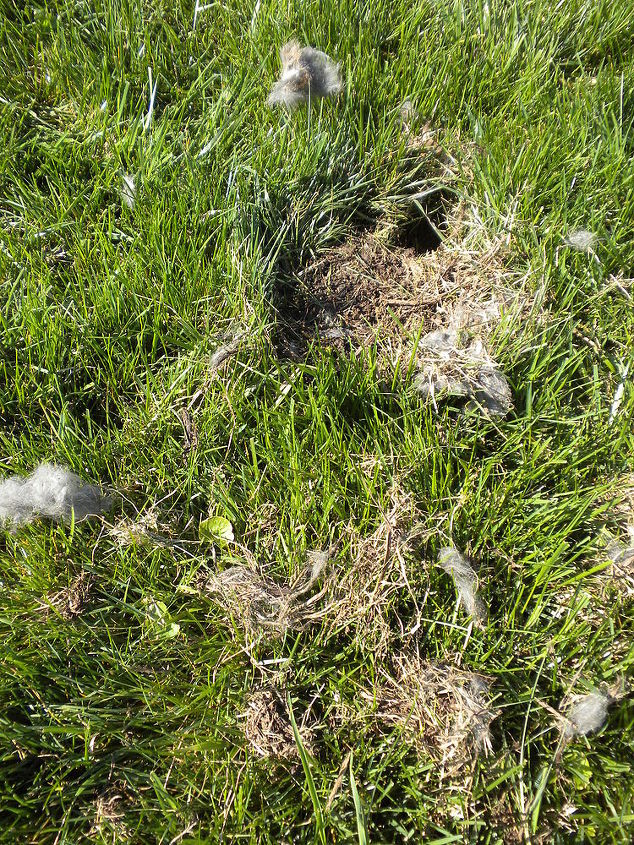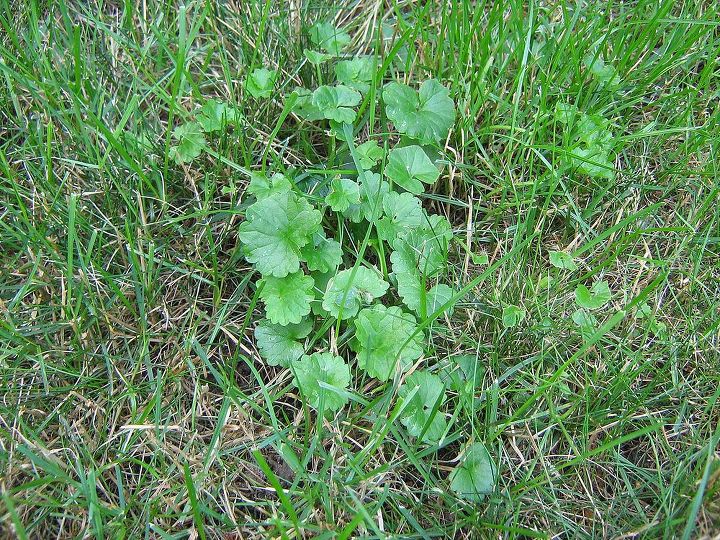Should pouring vinegar have killed all of the ivy?

Hi! I had English ivy throughout my whole back yard. Last summer we dumped vinegar on most of it and to my surprise it seems that it killed it. We recently had some trees removed in the same area and now the yard look like just dirt. Is the ivy all gone under the ground? Should I rototiller it? Thanks!
Related Discussions
GNATS - How to get rid of them?
Somehow my house and garden got tiny gnats that killed my fuchsia plant and fly everywhere. I have tried ALL the Web recommendations - soap and oil dishes, sand in th... See more
Marigolds growing! Should I pinch the buds?
My marigold plants are growing. I heard that pinching the buds until Autumn will allow them to grow without killing the plant. Is this true?
Growing garlic
Growing our first garlic, should we wait until the leaves are drying out before we pick it? Husband picked first one today along with our first potatoes.
How to keep mice out of your garden?
Hi everyone, I have mice in my garden destroying my vegetables and I have also noticed them in the barn and shed. Please can someone tell me how to prevent them from ... See more
What's the best flower/plant to grow in Texas?
I know that opinions vary, but what's your opinion?!I have great luck w Rosemary plants. Green all year long.
Can someone tell me what kind of animal this was in my yard?
I thought maybe a rabbit was burrowing in my yard, but it's almost dead center of my lawn (not a very smart rabbit). The hole is not very deep, and I replanted it onc... See more
Is Creeping Charlie in your lawn a good thing or a bad thing?
Is there a sure-fire way to get rid of Creeping Charley?





Depends on what you want to do next?
Hi KT Anne. I'm Cindy. If you applied vinegar on "most of it", chances are that may be some roots still under the surface. It would not hurt it to rototiller the area. Especially if you plan to seed or sod in the future. Remove any roots you may find.
only on the surface......... Ivy that is climbing trees is growing from the ground surrounding the trees. It is relatively easy to kill off the ivy ON the trees by severing the ivy roots at the base of the tree. Everything above the severed portion will die. Perhaps not immediately - there's a lot of energy stored in all that foliage - but eventually without any root access to moisture and nutrients, it will brown, dry and die.
However this method does nothing to kill off the roots that remain in the ground surrounding the trees. Those must be manually dug out and removed (and very completely) or they must be treated with a registered herbicide. Spraying with vinegar and salt or whatever homemade potions you can come up with will not kill the ivy and could very easily have negative impacts on whatever desirable growth exists. Tilling will only spread the roots around and would end up exacerbating the problem, not solving it. And ivy just doesn't smother well. Wood chips will not be the slightest bit effective in this regard and spraying paint on it is likely just as pointless as any other short cut method and can also have negative implications to the environment.
It is difficult to be more clear than this - an established stand of English ivy is difficult to conquer and remove!! It requires time, the correct approach and considerable effort. In the PNW where English ivy is nearly omnipresent in natural landscapes (parks, woodlands, forests and any other native areas), a great deal of time and expense is devoted to clearing it out. Nearly ALL the effort is devoted to manual removal as that is by far the most thorough and effective means of controlling this invasive monster. Simply stated, there are NO short cuts available to home gardeners that have the slightest bit effectiveness other than manual removal or proper treatment with a registered herbicide.The chemical strategy that doesn't work is to cut the plant, then go back later and treat the stump with an herbicide, even a strong or concentrated herbicide. Woody plants, it turns out, are very good at "compartmentalizing" a problem, even a very serious one. Within seconds, literally, of being cut, a woody plant or vine seals up the cut areas with residues that block the intake of the herbicide toxins into the remaining parts of the tree or vine,
The chemical strategy that works is to apply an appropriate concentrated herbicide IMMEDIATELY upon making the cut, before the plant has the (minimal) time it needs to block uptake via the severed circulatory system. (One published study says the window of opportunity for blackberry vines is 15 seconds; another author says that window is only four seconds!)
Recommended herbicides include a 20% concentration of glyphosate (start with the concentrated bottle that says "41%" and create a working solution by diluting 1:1 with water). Or use an 8% solution of triclopyr. In either case, you are starting with a bottle marked "concentrate", not with a pre-mixed spray bottle. In the bad old days the solution was applied with a small paint brush; today the weapon of choice is a cheap household hand spray bottle. And of course you should be wearing rubber gloves and eye protection.Round-Up Pro concentrate works best.
When using any herbicide--or any garden chemical, even those marked "organic"-- ALWAYS READ AND FOLLOW THE LABEL INSTRUCTIONS AND WARNINGS.Round Up works by being sprayed on leaves absorbed thru stems the into root system killing entire plant works best when plant is in growing stage absorbing faster into plant. add food coloring to the roundup so you can see where you have applied it.spray any new growth when it is 3-6"s do not wait keep on top of it daily ....whole area and outside of the area because it will spread underground.
Thanks everyone. It’s been a year since we did the vinegar and where we sprayed it nothing has come up. Someone told us before they used vinegar and it never came back which it hasn’t yet for us it actually looks like the ground was burned bc it’s all just dirt now. We had trees removed and the tree guy said the ivy was bc of the tree and once we got the tree removed we would be able to kill the ivy with treatment. I’m trying to figure out a way to do it myself instead of hiring a professional. We can’t see any of the ivy now so I didn’t know if I should rototill it. We want to plant grass.
Pictures are before and after: